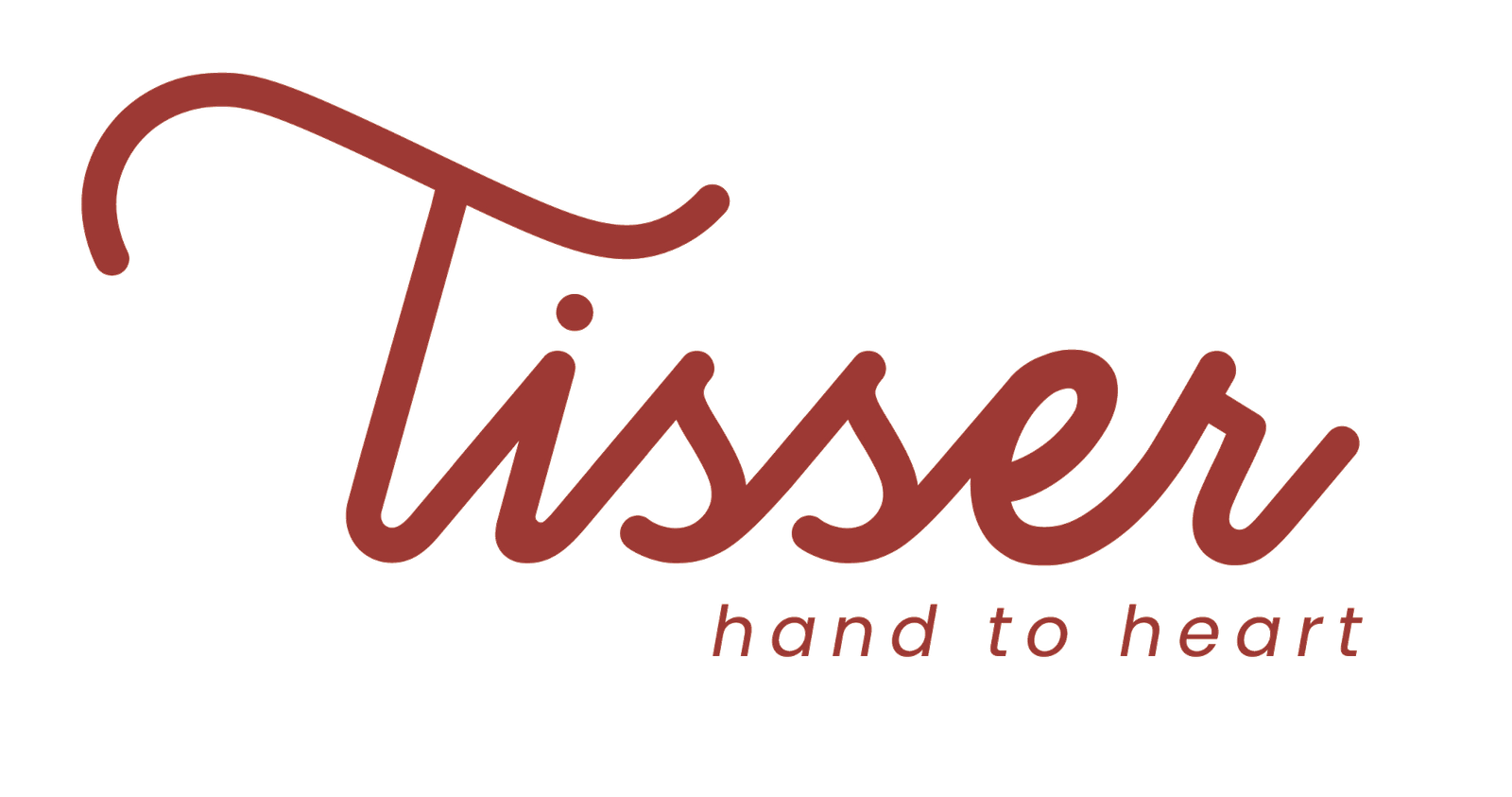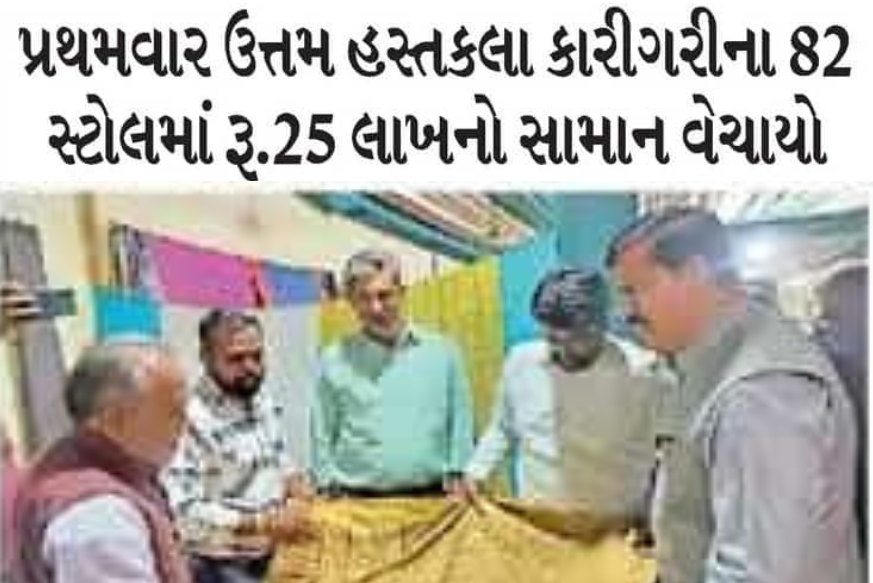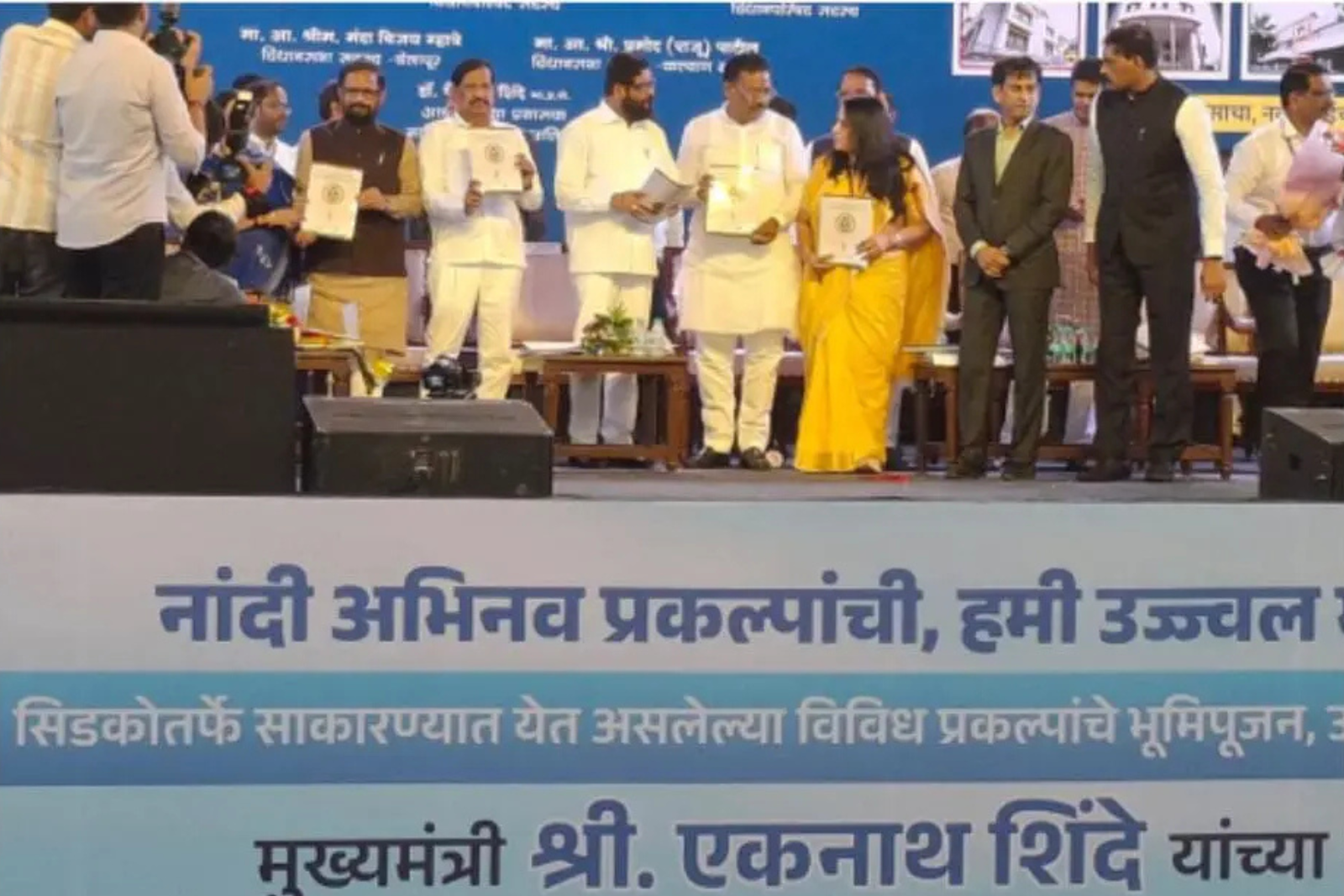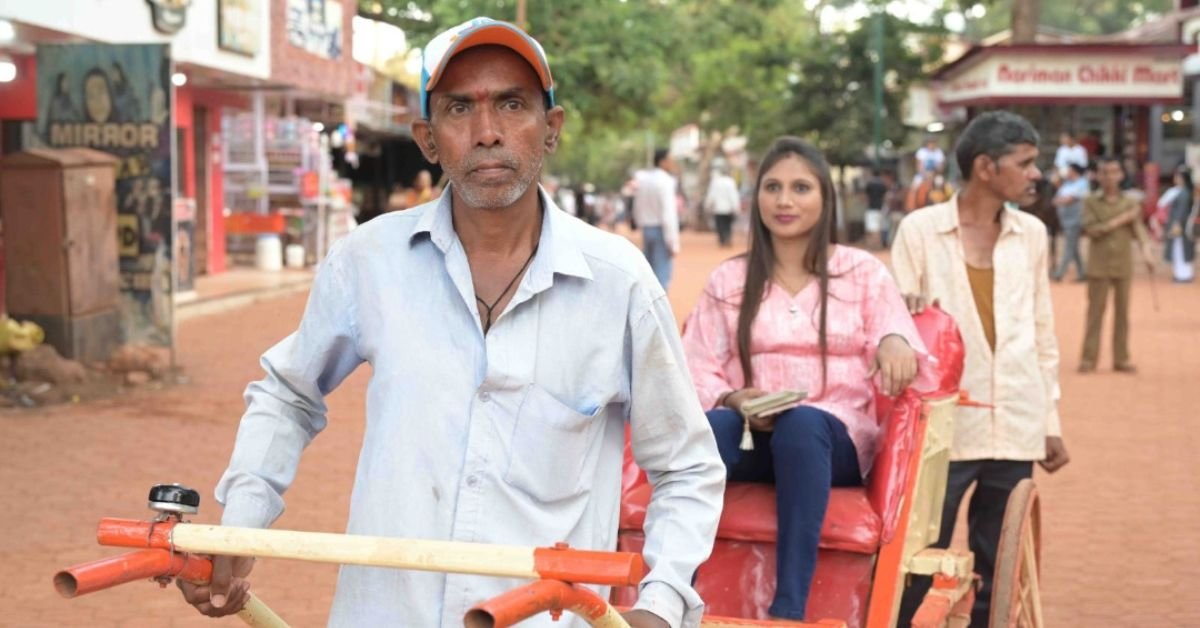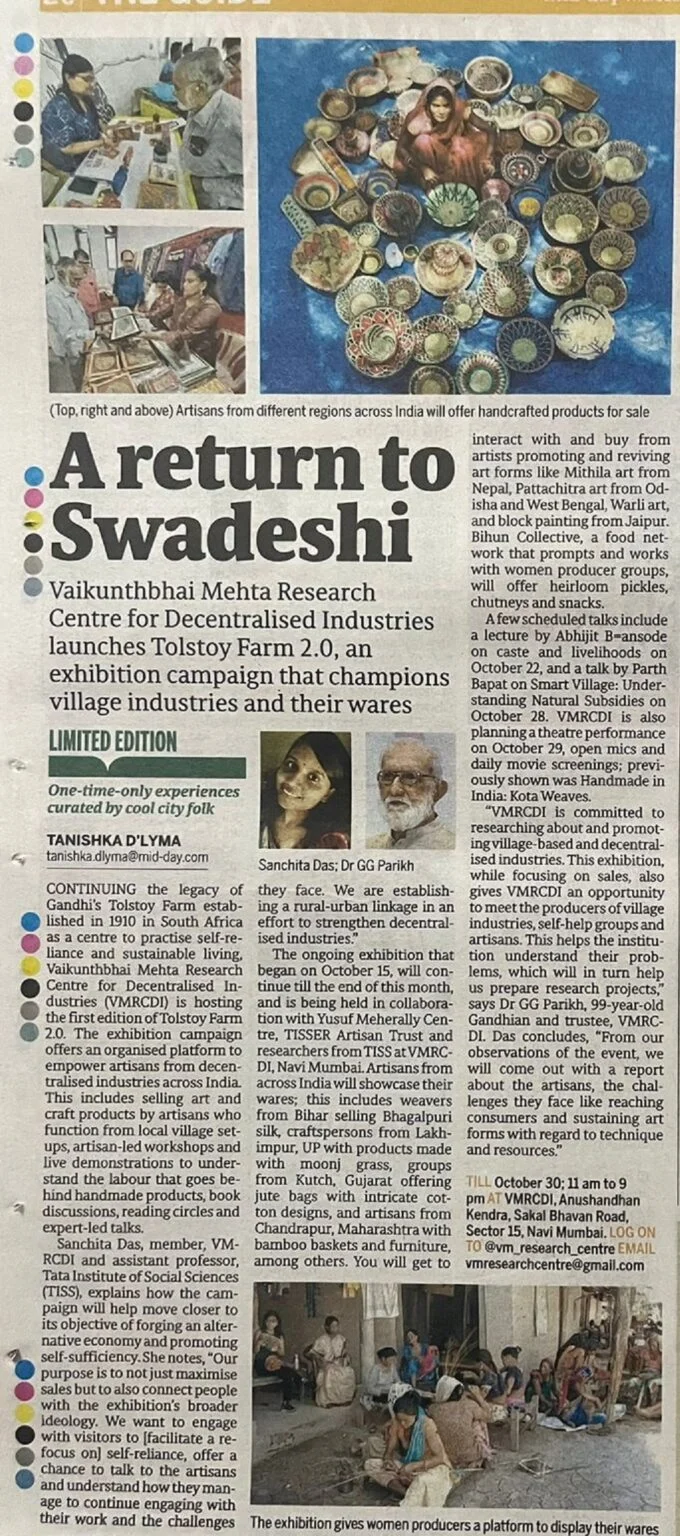Media
At a function held at the CIDCO Convention Centre, Vashi, in the presence of Ms. Roop Rashi, Textile Commissioner & Vice Chairperson,
When Sunil Shinde, a retired teacher, petitioned to the Supreme Court to allow e-rickshaws in Matheran, he was just trying to help
Consul General Mike Hankey’s residence receives guests with a visible celebration of art and culture in west India. To capture the vibrant
New Delhi [India], October 20: In the dynamic landscape of 2023, meet 20 trailblazers shaping diverse industries and communities.These remarkable individuals exemplify
The Tisser Artisan Trust, founded by Megha Phansalkar, has generated livelihoods for 1000+ rural clusters in 18 states and has helped incorporate
In the dynamic realm of business, a group of remarkable women entrepreneurs is fearlessly shaping the future with their visionary leadership and
An Urban Regional Planner with an experience of 20 years in the development sector. Dr. Megha Phansalkar specializes in community-led development in
I am an Urban Regional Planner with an experience of 20 years in the development sector. Dr. Megha Phansalkar specializes in community-led
Dr. Phansalkar is a gold medalist in master’s in three subjects and a Doctorate in ‘System Design for Resource Planning and Management’
About the Organization “Tisser India aims to provide sustainable livelihoods, income-generating opportunities, and access to professional support to rural artisans in
INTRODUCTION Tisser Rural Handicrafts is a social venture established to uplift the lives of rural Indian artisans. Tisser shares the mission of
About Tisser Tisser in French means ‘to weave’. Tisser supports weavers and craftsmen who make products using traditional techniques, skills, and hand
Dr. Megha Phansalkar, Tisser Rural Handicrafts Based in Mumbai, Tisser Rural Handicrafts Pvt Ltd and Tisser Artisan Trust was started by Dr.
Indira Gandhi Memorable Awards were presented to Bollywood actress and social activist Juhi Chawla, actor Nawazuddin Siddiqui, international athlete Kavita Raut, writer
